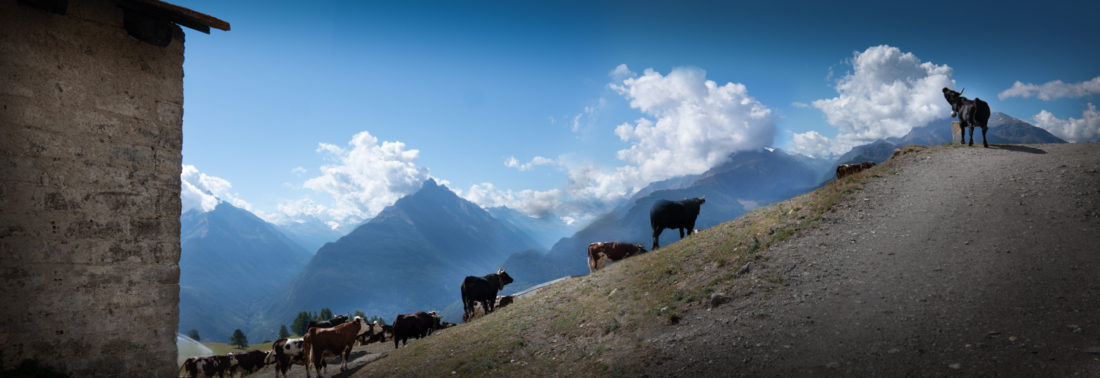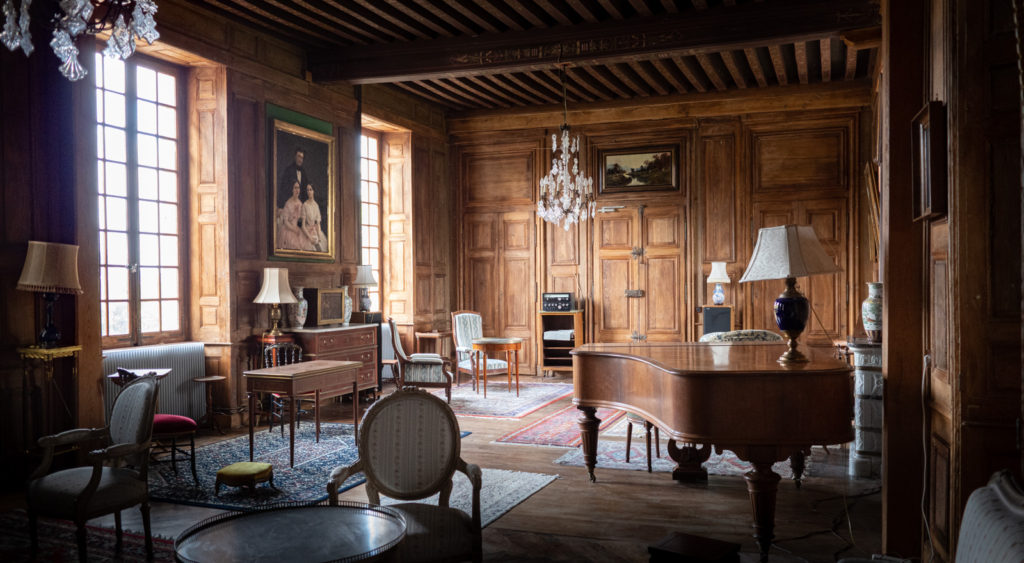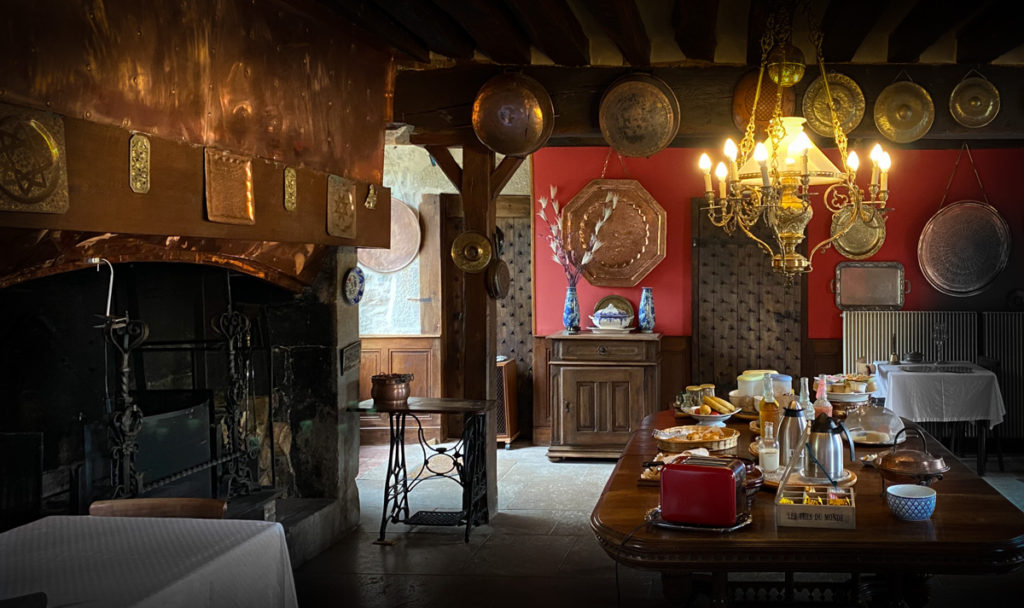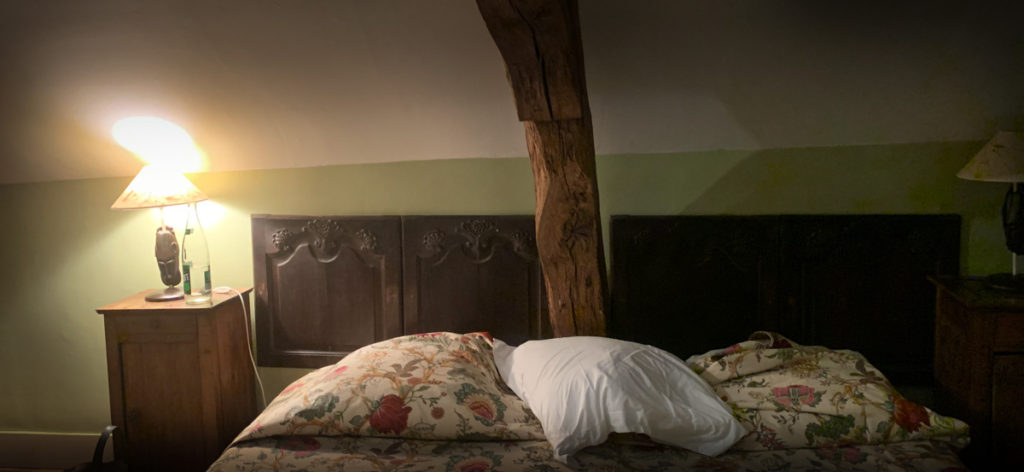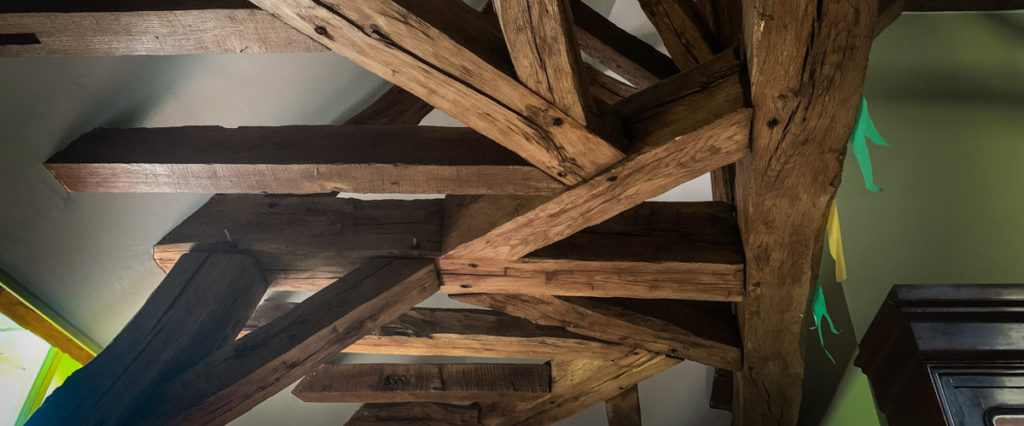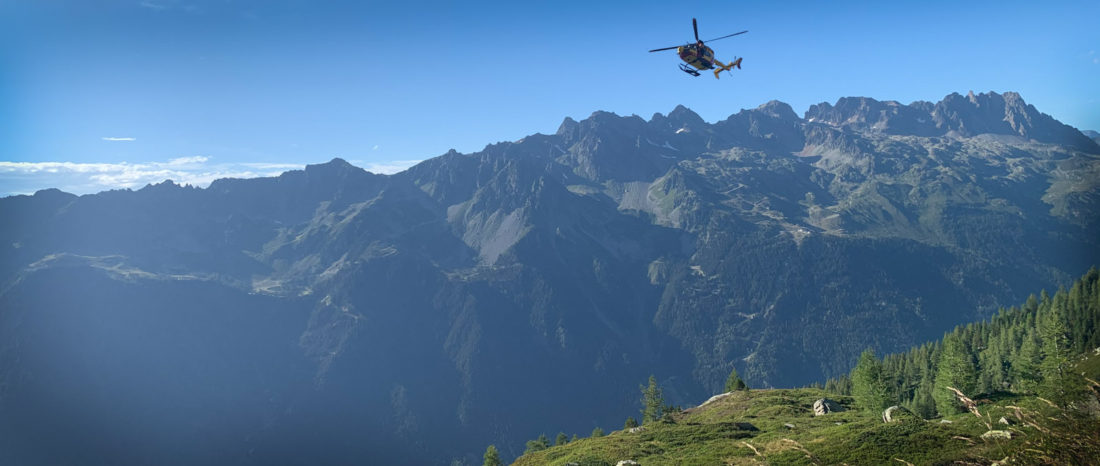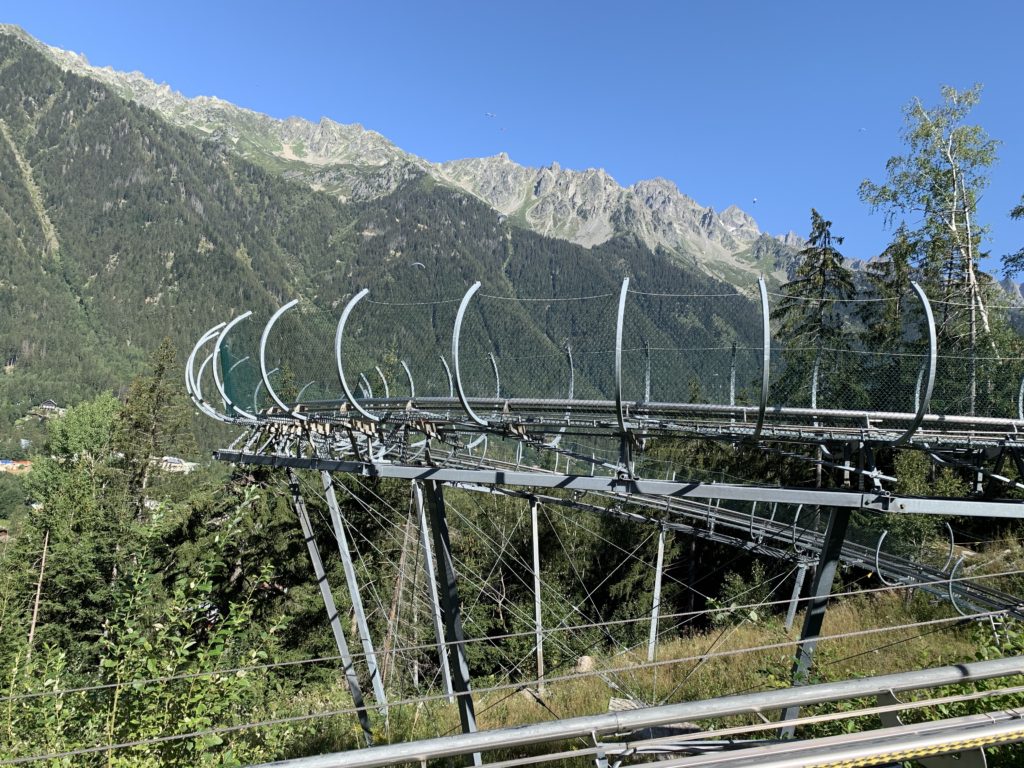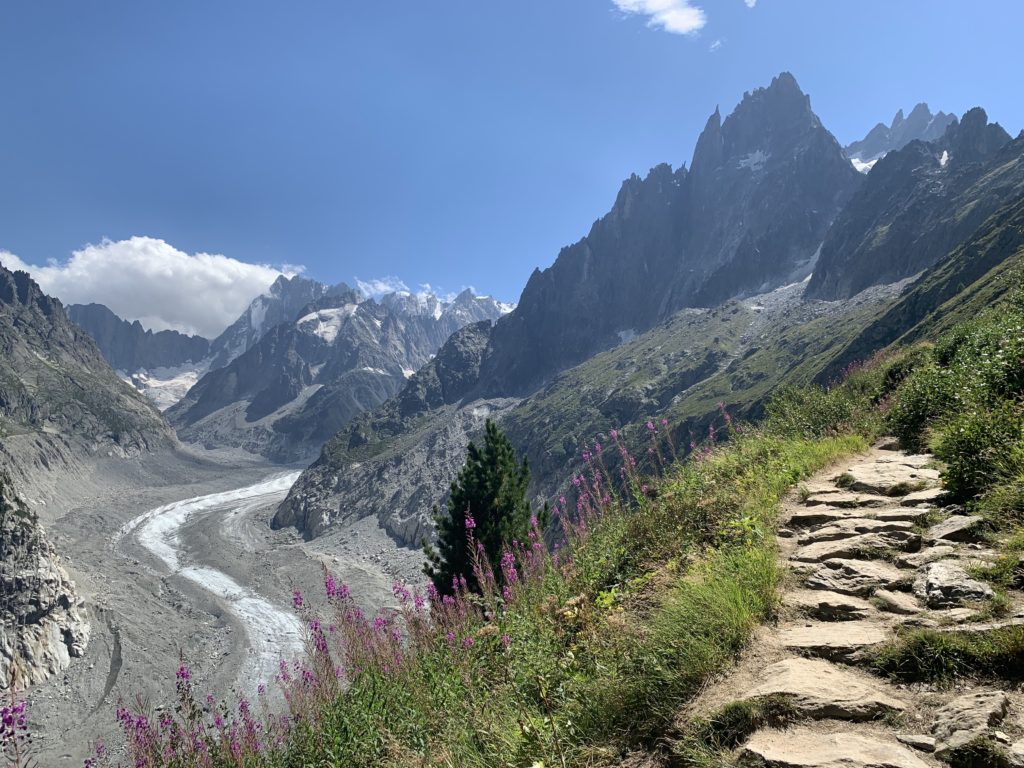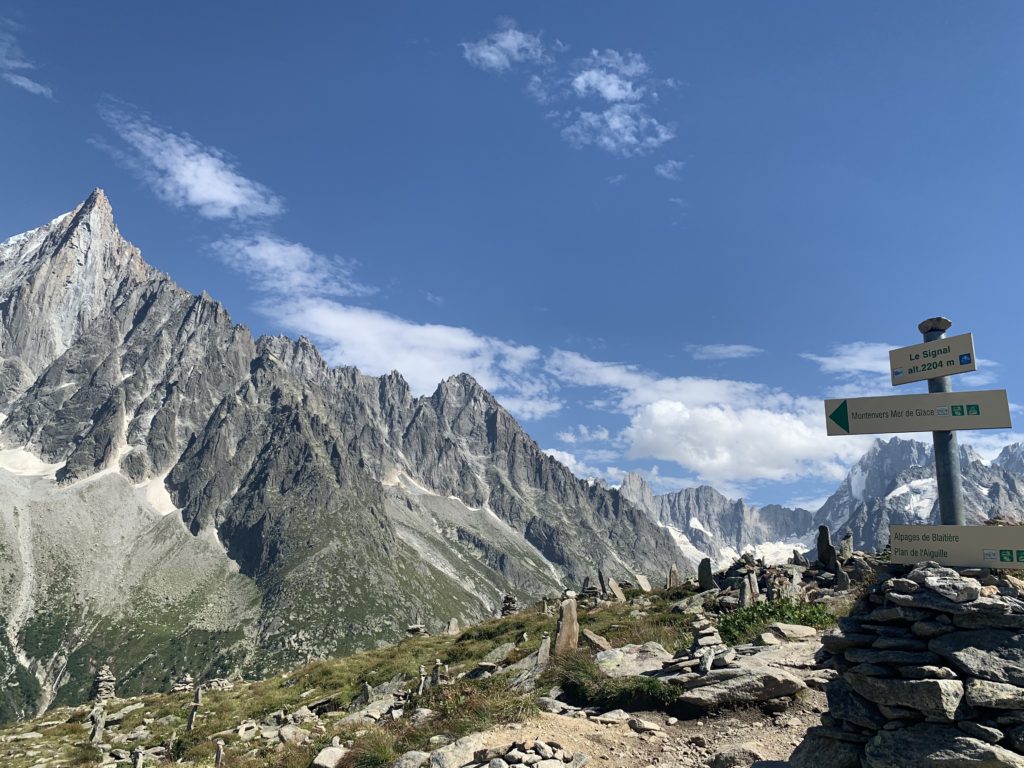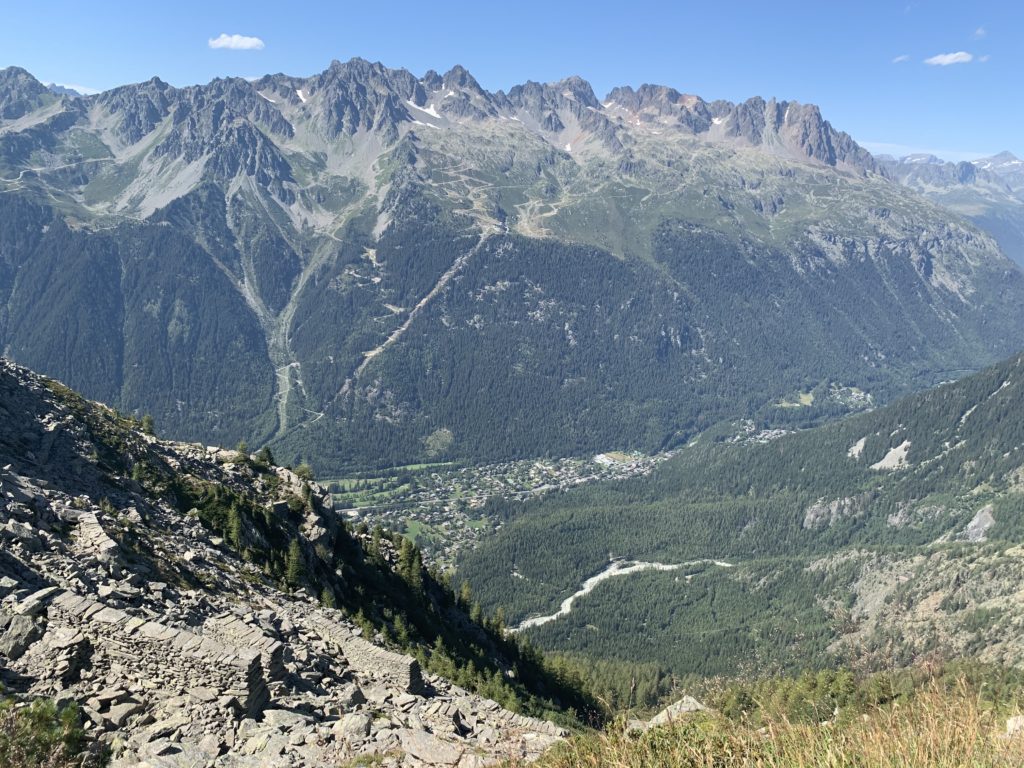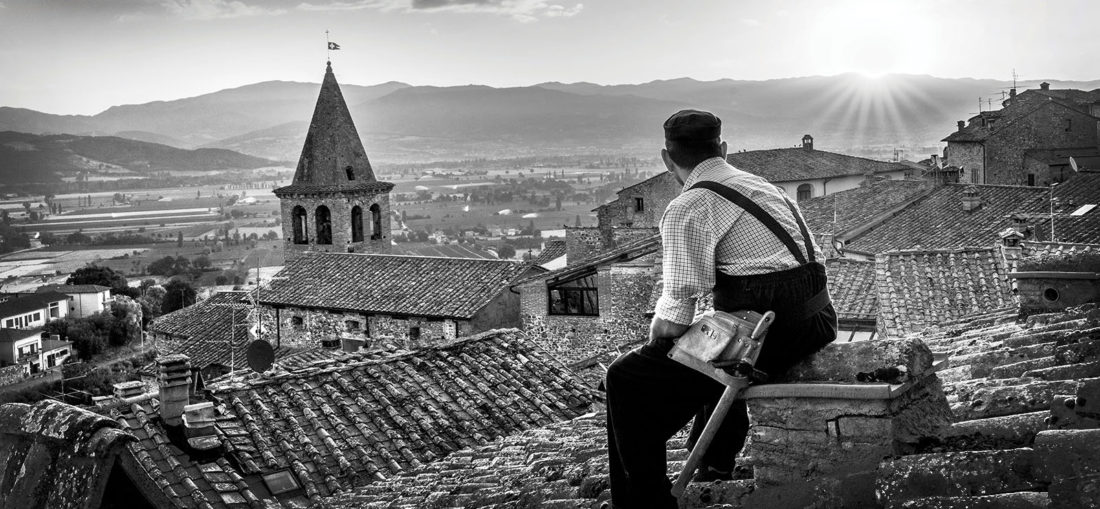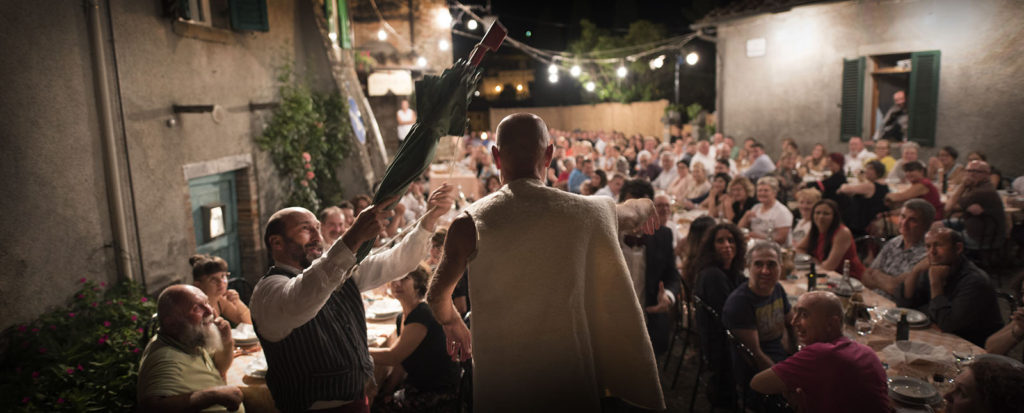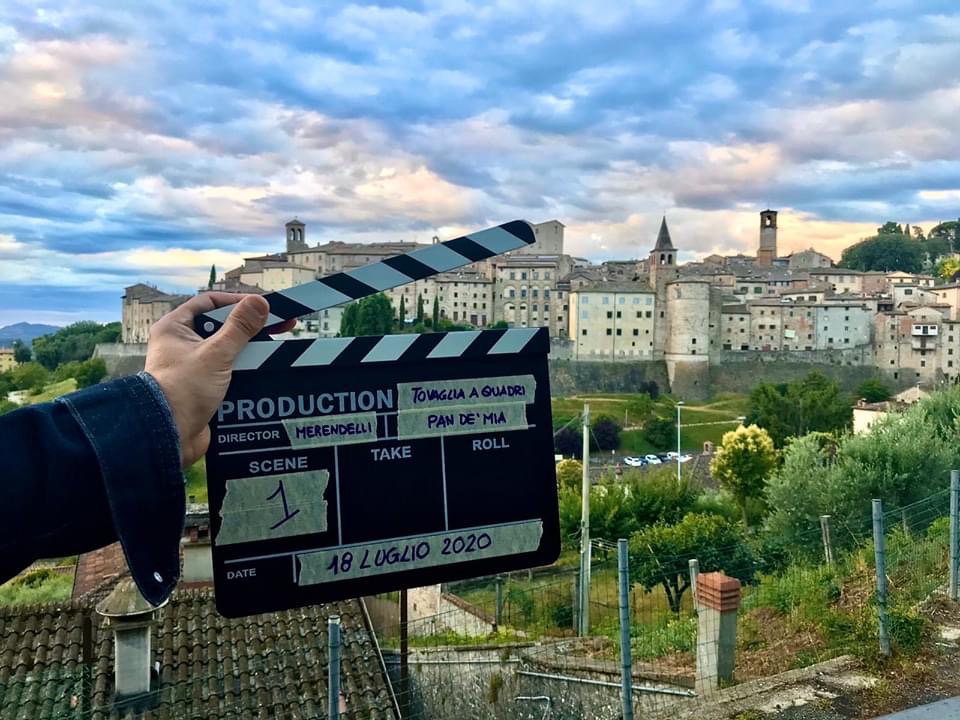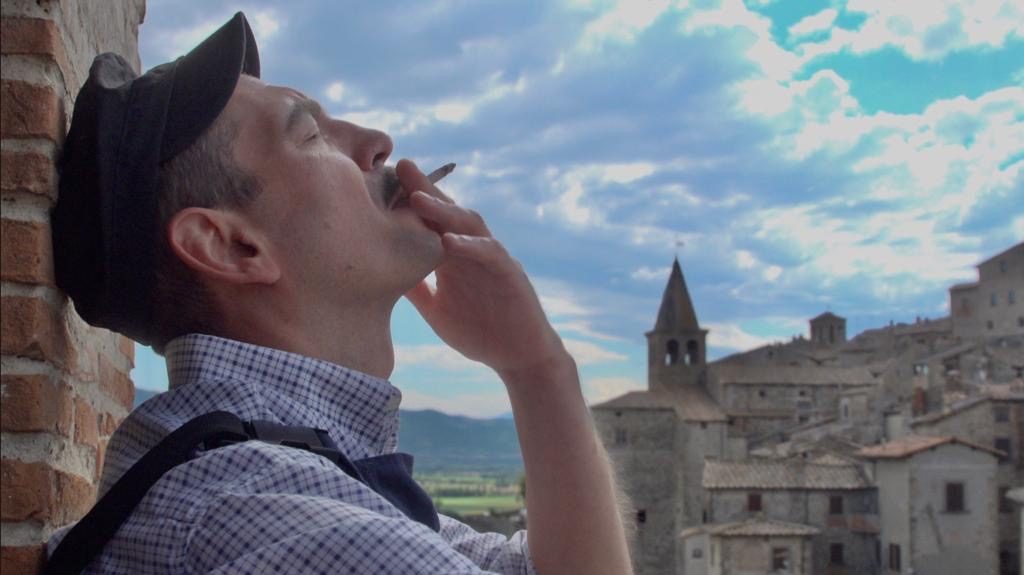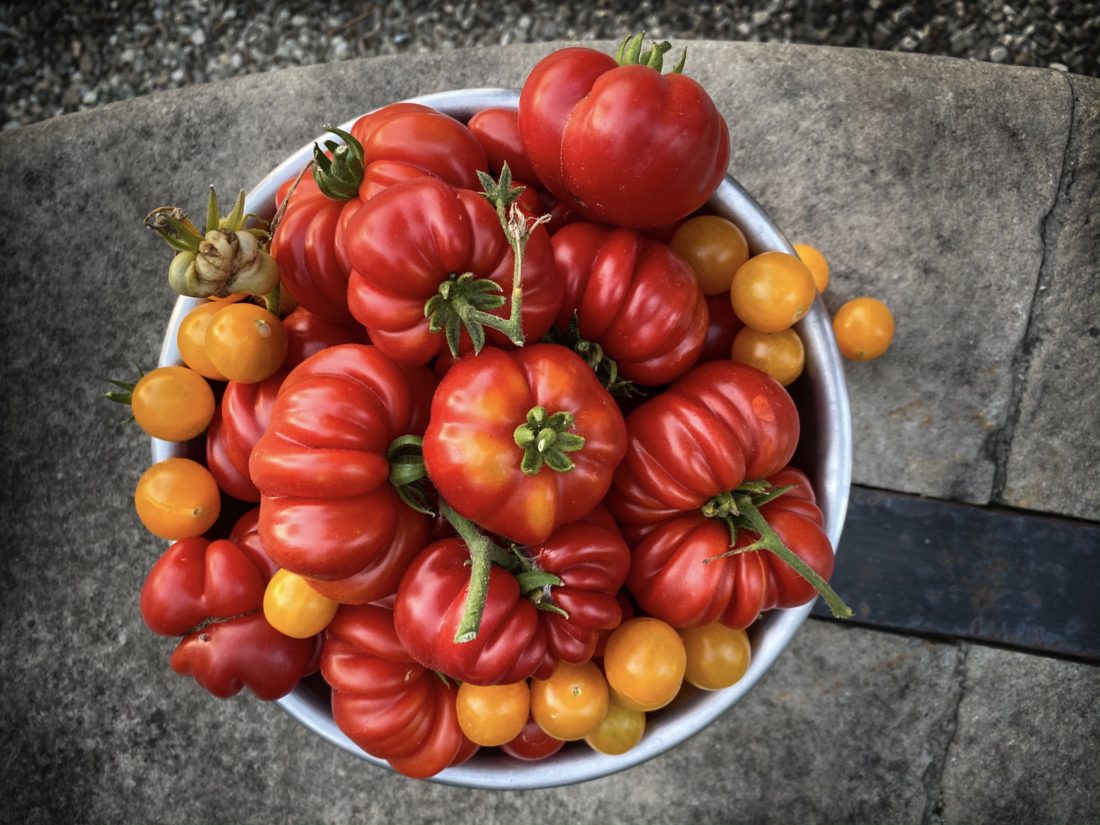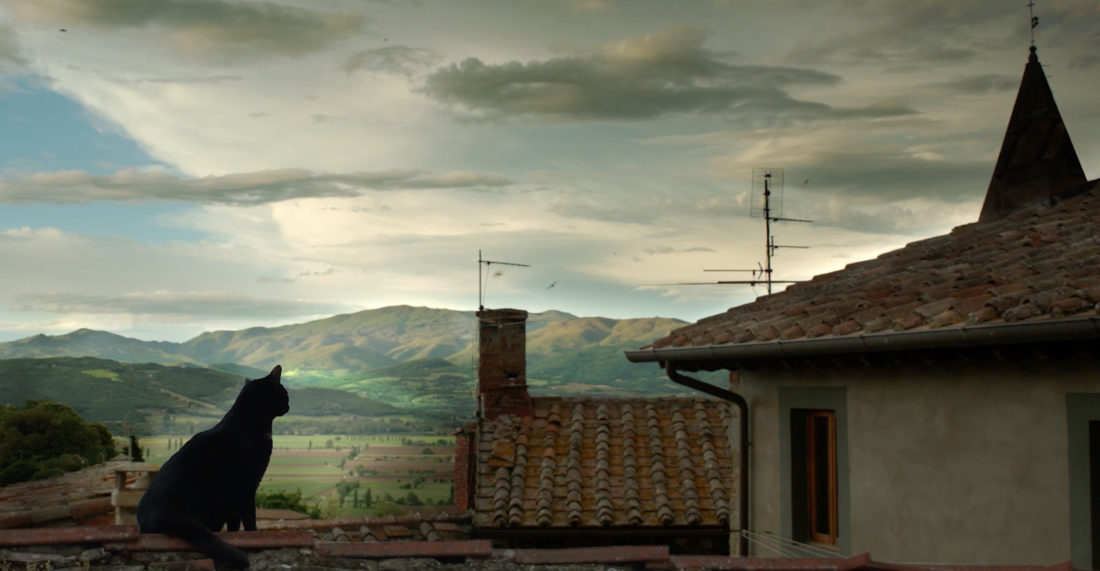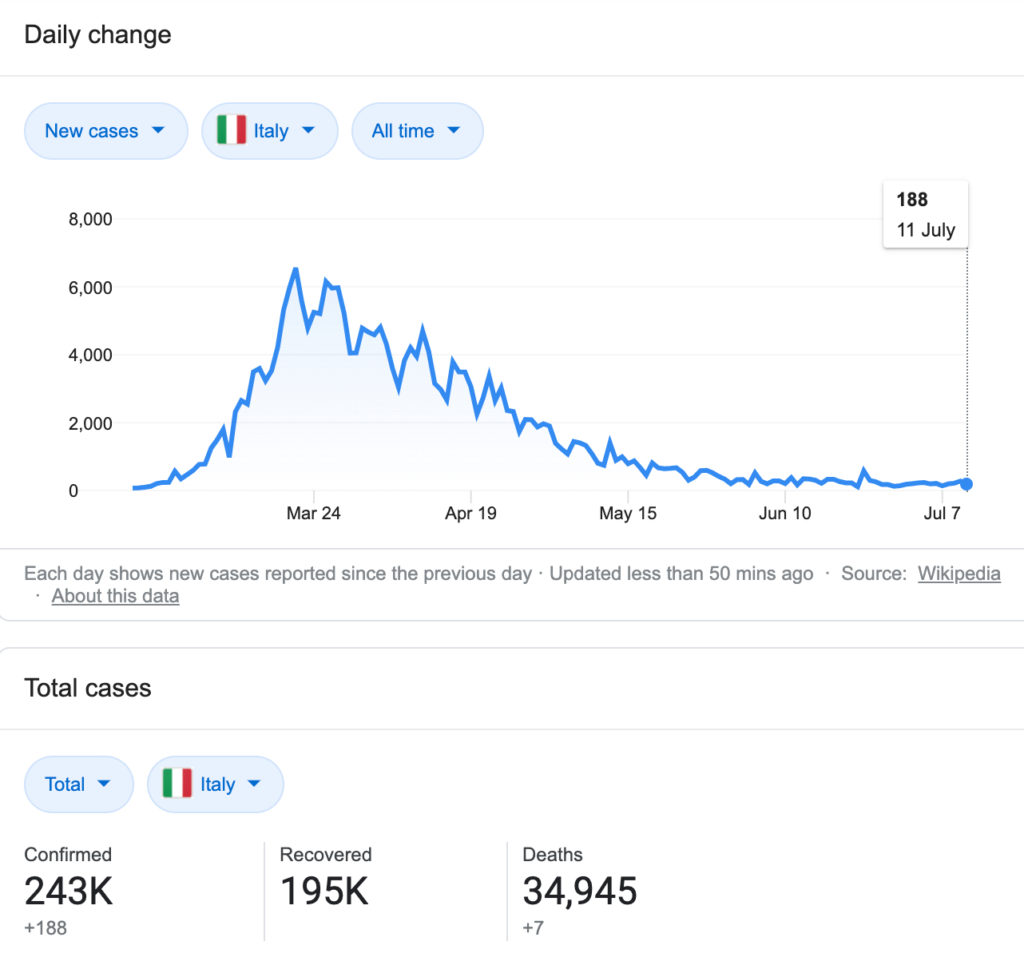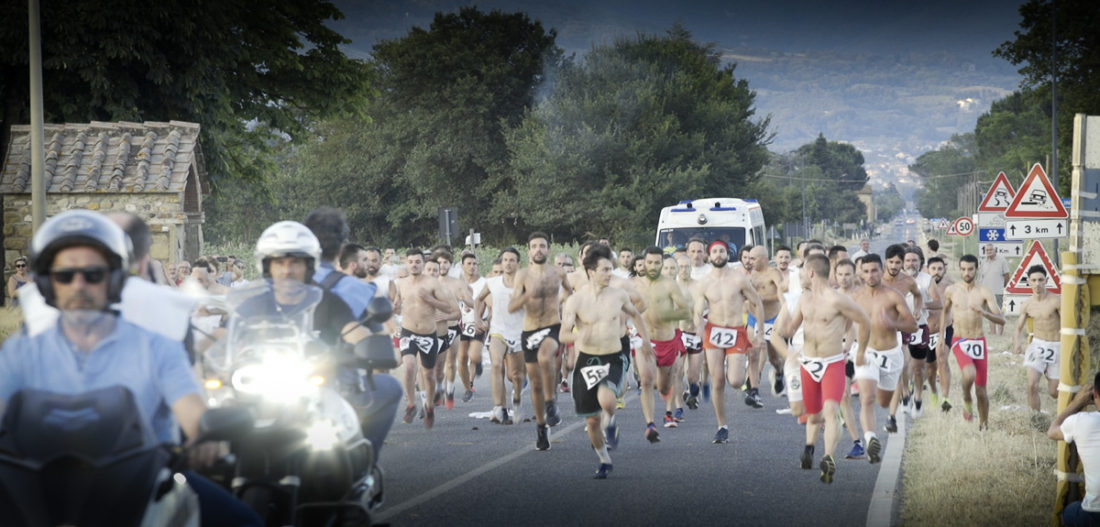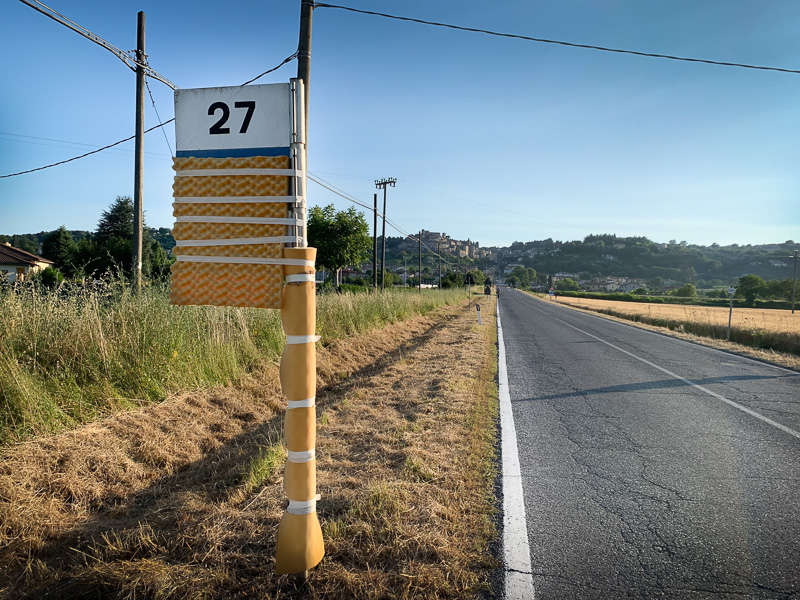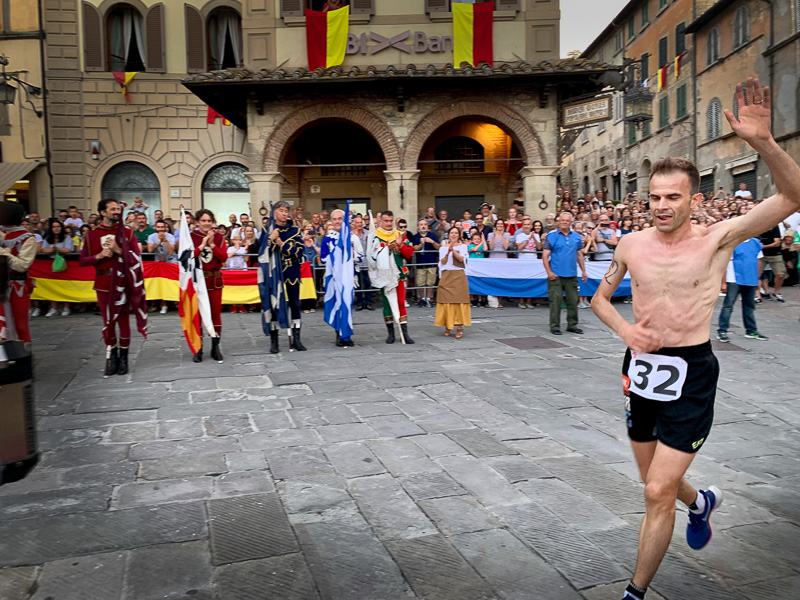Cheese made in heaven
Since I had such a memorable adventure on the Chamonix side of Mont Blanc I felt it was only fair to give the Italian side a chance so on the return trip to Italy we stopped in Courmayeur for the night. We had work to do. Largely involving cheese.
Before this trip I’d asked Edward Behr for advice about food in the Val D’Aosta. (Edward edits and publishes The Art of Eating, which is one of my favorite publications on food and wine.) One of his recommendations was that we track down a Fontina maker in the mountains. Challenge accepted.
To do so we needed to add on an additional night in Courmayeur — not a hardship as we’d landed in a nurturing, cozy, and rustic place, Maison la Saxe. The six-bedroom inn was in a rustic farmhouse from the 1700s, one of many houses in a tightly packed cluster literally in the shadow of Mont Blanc. When I say tightly packed I mean the tiny lanes between the houses are about an arm’s width across. I asked the owner, Raphael, a guy in this thirties who was born in Courmayeur, had lived all over the world, and then returned to the village to restore and run the inn, and he said they were built tightly together not for defense but warmth. It’s the kind of place where my stone shower had a window thoughtfully installed with a view of Mont Blanc.
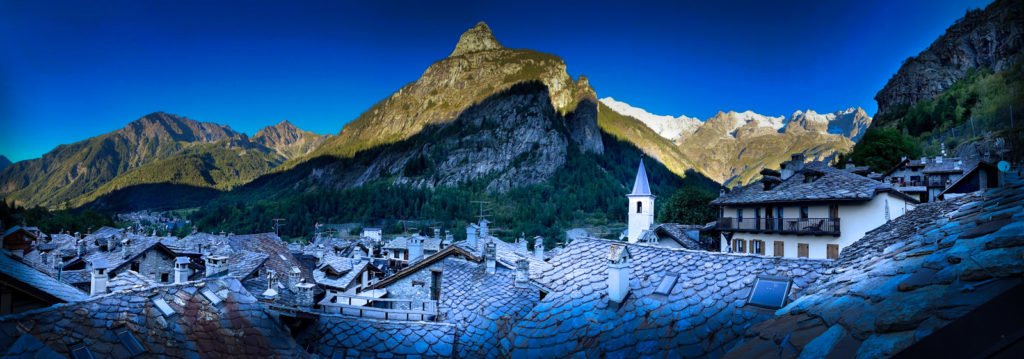
I enlisted the aid of Raphael for our Fontina search. He called a Fontina maker who invited us up the following morning. Up is a description I chose carefully. It took us 40 minutes to go just a couple of kilometers above the town of Aosta on one of the curviest roads I have ever driven. Pretty soon we were at eye level with the highest peaks and surrounded by green meadows. It was the closest to heaven I will probably every get.
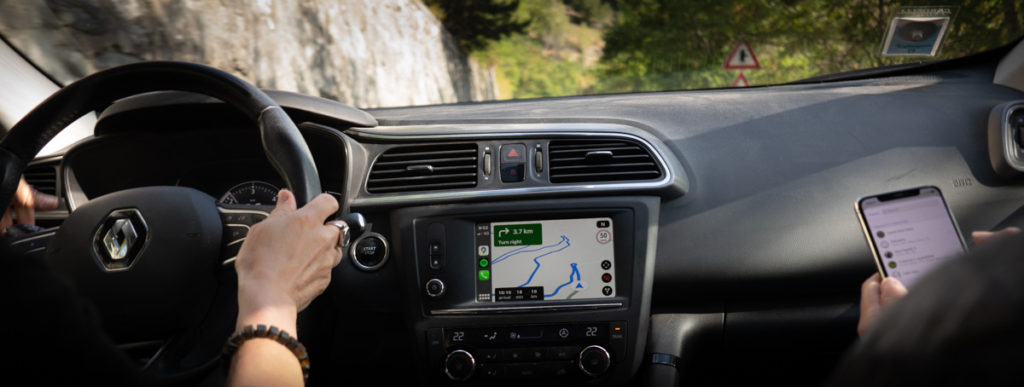
Raphael had given us coordinates of where to park which was an unmarked grassy area at the top of the road. We then had to actually find the cows and cheese-makers. We asked at a tiny restaurant and were pointed to a hiking trail leading ten minutes straight up through the pastures to a small barn, the summer home of Azienda Agricola Quendoz.

The cheese maker took us into a small room with a huge copper cauldron to show us how it’s done. The cheese maker was originally from Morocco and had come to this spot, fallen in love with it, and moved here to take care of the cows and make cheese, more than a decade before. I can see the appeal of this life.
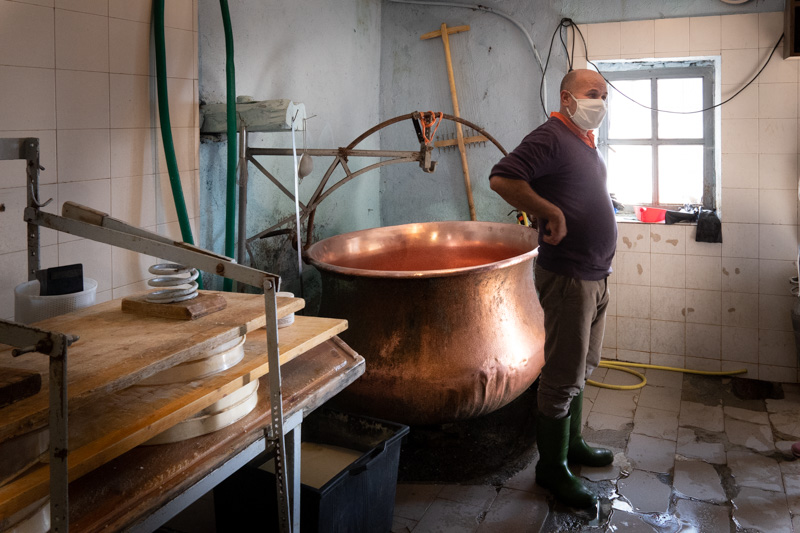
True Fontina comes only from here. To be recognized as “Fontina” (which has DOP — protected designation of origin — status from the EU) the milk has to come from red-pied Valdostana cows who graze only on these mountain grasses. They are milked twice a day and the cheese is made twice a day as each batch has to be from a single milking. The milk is heated in large copper cauldrons, enzymes and rennet are added to produce curds, the cheese is separated and drained, and pressed into a wheel-shaped molds. It’s brined in salt for two months and then set aside to age for three more months, frequently turned and salted. We tried the just ready Fontina along with a much more aged version and they were complex and interesting, not at all like the boring cheeses marketed as Fontina from other countries. This was nutty and buttery and wonderful.
Then on the way back down we got to meet some of the girls.
I wanted to write this article this not because I thought you needed to become Fontina aware, but more because I wanted to share this place of beauty and peace and a glimpse into a different way of life.
Trip notes:
If you are ever in Aosta but don’t have time to make it up the hill Raphael also pointed us to a small cheese shop downtown with a surprisingly large selection and a big cheese cellar in their basement (photo below) called Erbavoglio Antica Latteria. They put together a delicious tasting for us and looks like I can also order from them. I see more Fontina in my future.
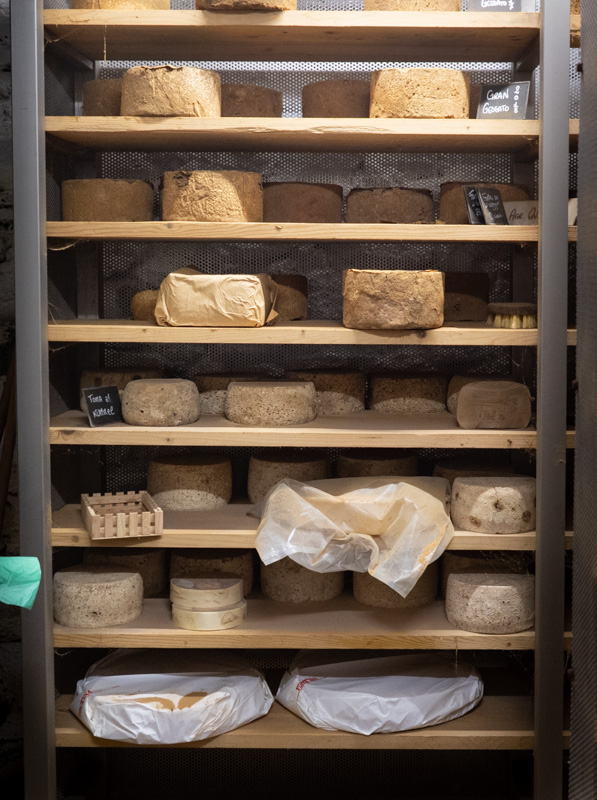
Ed Behr also recommended Salumeria Bertolin in Arnad, just as you enter Valle d’Aosta. I stopped on my way to France and loved it. A wide variety of mountain salumi and delicious tasting board. I was fascinated by one that looked like a salumi but was made from beets. When life gives you beets…


